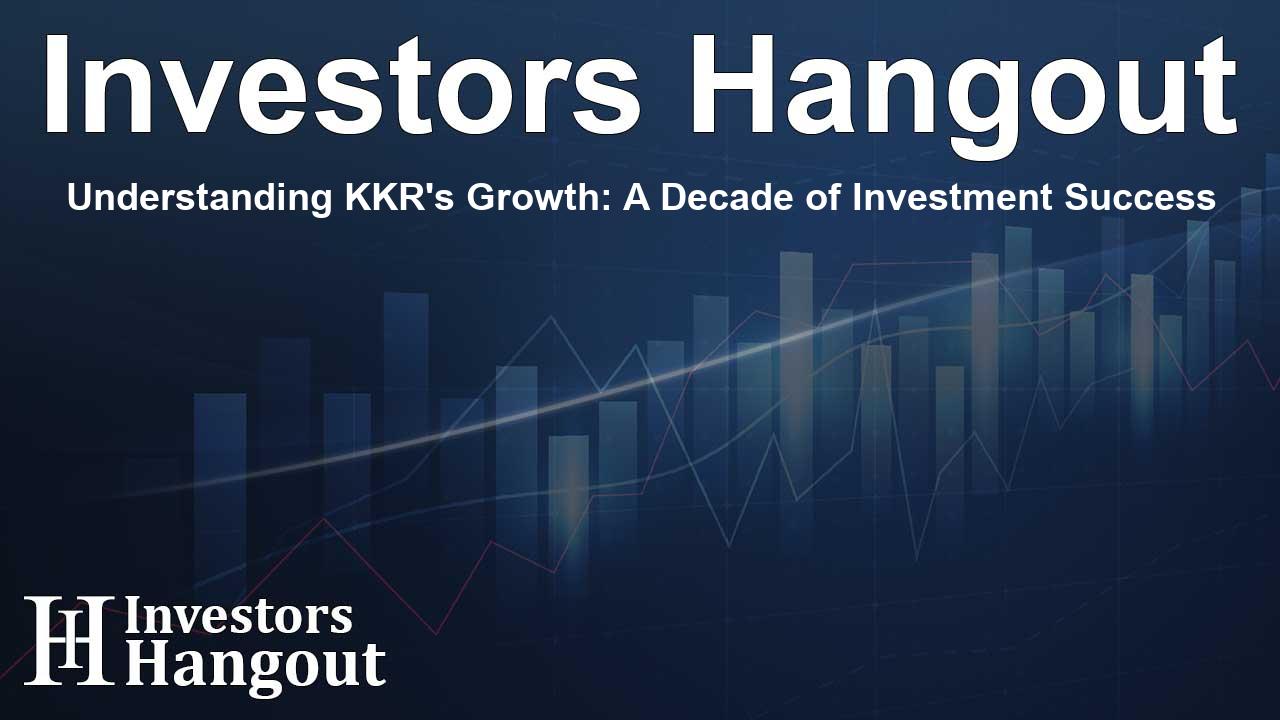Understanding KKR's Growth: A Decade of Investment Success

Investing in KKR: A 10-Year Journey
Investing wisely is all about understanding the market and making informed choices. Over the last decade, KKR has emerged as a prominent player, significantly outperforming the market with an annualized return of 19.02%. With a current market capitalization of approximately $119.00 billion, KKR’s growth story is nothing short of remarkable.
Analyzing $1000 Investment in KKR
If you had the foresight to invest $1000 in KKR stock ten years ago, your investment would be worth an astonishing $5,686.33 today, given the current price of $133.97 per share. This illustrates the powerful impact of compounding returns over time.
Unlocking Compounded Returns
The insight here is profound: understanding how compounded returns work can dramatically change your financial outlook. Compounding allows your investments to grow exponentially rather than linearly, providing a robust foundation for building wealth.
KKR’s Market Presence
KKR is known for its wide array of investments across various sectors. The firm primarily focuses on private equity, infrastructural investments, and energy strategies. Such diversification not only solidifies KKR's market presence but also mitigates risks, enabling more stable returns.
Looking Ahead: Future Projections for KKR
As KKR continues to adapt to market changes, investors remain optimistic about its growth trajectory. The firm's strategic decisions and market tactics position it well for future expansion, making it an intriguing option for both new and seasoned investors.
Key Takeaways for Investors
When considering investments like KKR, it's essential to conduct thorough research and understand the mechanisms behind stock performance. The past decade has shown how patience and informed decision-making can yield significant benefits.
Frequently Asked Questions
What makes KKR a strong investment choice?
KKR's impressive annualized return performance and diverse investment strategies make it a compelling choice for investors seeking stability and growth.
How is KKR’s growth measured?
KKR’s growth is typically measured through market capitalization and annualized return rates, providing a clear picture of its investment performance over time.
What has contributed to KKR’s success?
A combination of strategic investment choices, market adaptability, and a focus on diversified portfolios has significantly contributed to KKR's sustained growth.
Why is compounded return important?
Compounded returns are vital as they amplify the growth of investments over time, allowing investors to earn returns on both their initial investments and on previously earned returns.
What strategies does KKR employ for growth?
KKR employs a range of strategies including private equity investments, infrastructural development, and strategic acquisitions to foster growth and adaptability in changing markets.
About The Author
Contact Kelly Martin privately here. Or send an email with ATTN: Kelly Martin as the subject to contact@investorshangout.com.
About Investors Hangout
Investors Hangout is a leading online stock forum for financial discussion and learning, offering a wide range of free tools and resources. It draws in traders of all levels, who exchange market knowledge, investigate trading tactics, and keep an eye on industry developments in real time. Featuring financial articles, stock message boards, quotes, charts, company profiles, and live news updates. Through cooperative learning and a wealth of informational resources, it helps users from novices creating their first portfolios to experts honing their techniques. Join Investors Hangout today: https://investorshangout.com/
The content of this article is based on factual, publicly available information and does not represent legal, financial, or investment advice. Investors Hangout does not offer financial advice, and the author is not a licensed financial advisor. Consult a qualified advisor before making any financial or investment decisions based on this article. This article should not be considered advice to purchase, sell, or hold any securities or other investments. If any of the material provided here is inaccurate, please contact us for corrections.
